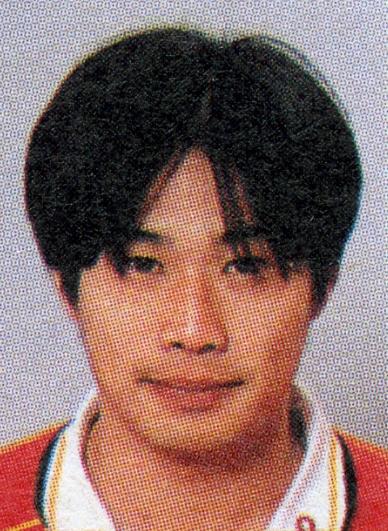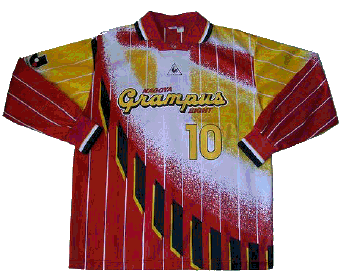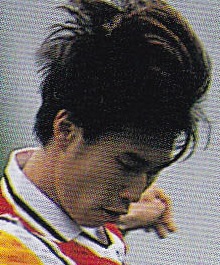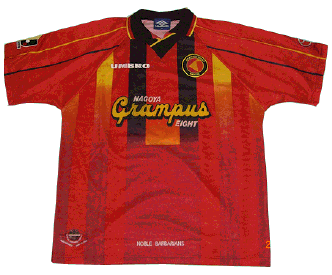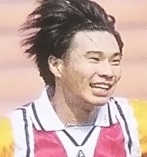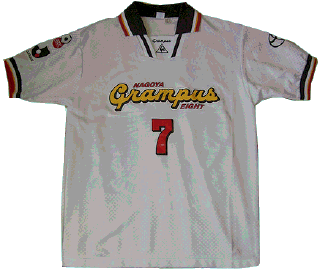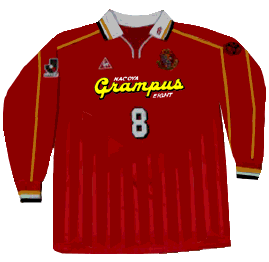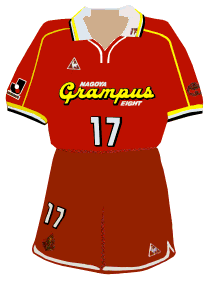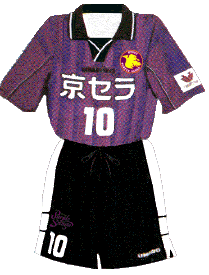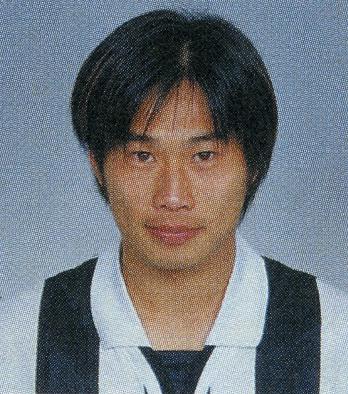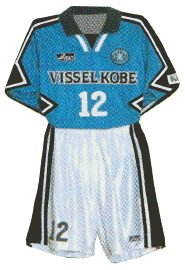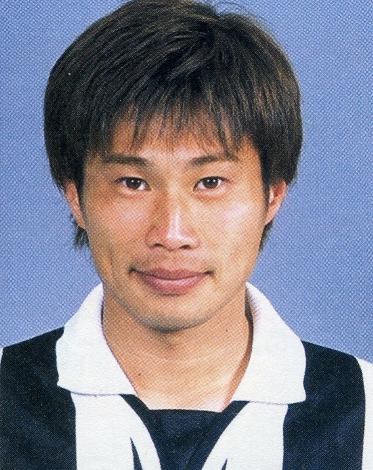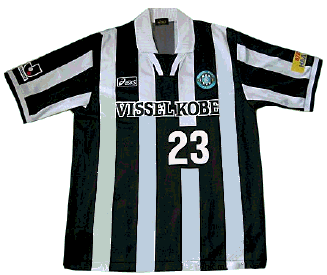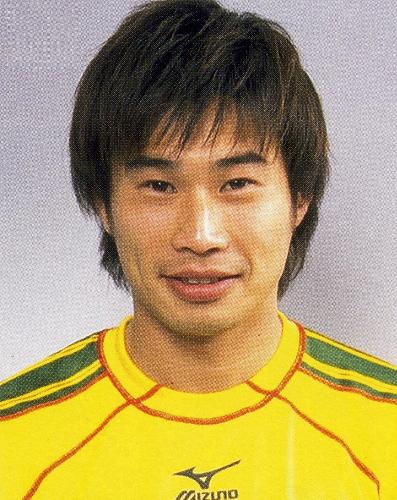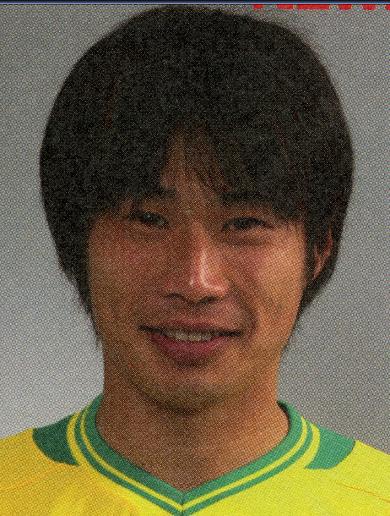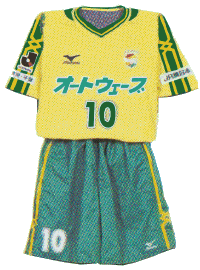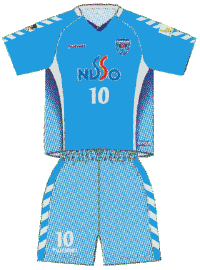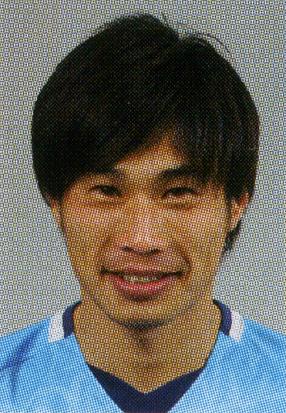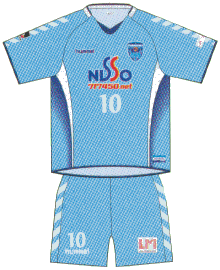BioShigeyoshi Mochizuki had a reasonably successful career as a journeyman defensive midfielder, and was effective enough to earn numerous calls to the national team during the early stages of Phillippe Troussier's reign. His steady performances in the J.League over more than 200 matches alone might qualify him for consideration to our J.League Hall of Fame. However, history will remember him less for his contributions over a long career, and more for two specific incidents -- one which earned him scorn and another which vaulted him to the heights of heroic success. Both stories are recorded in the folklore of Japanese football and etched in the memories of fans, to such an extent that Mochizuki cannot possibly be overlooked as one of the most memorable of players. Mochizuki got a late start to his J.League career, attending Tsukuba university and completing his education before joining Nagoya Grampus in 1996. He quickly earned a spot as a regular starter for Nagoya, and within about three years he was viewed as one of the team leaders and locker-room organizers, contributing to the spirit of team harmony at Grampus. But in 2000, the team went through a very difficult spell, with fans despairing at the team's inability to bring home a championship despite a star-studded roster. At the beginning of the season, Joao Carlos -- who had led the Kashima Antlers to their first J.League championship in 1996 -- took over as head coach. He immediately set out to whip the players into shape. Unfortunately, the coach failed to win the respect and loyalty of the players, and when his harsh coaching tactics produced only turmoil and even worse results on the pitch, many of the old-timers became disaffected. Midway through the season several players were so discouraged that they were on the point of revolt. Three in particular -- Mochizuki, Takeshi Hirano and Go Oiwa -- argued that the players should simply ignore the coach's instructions and play the way that they though best. Unfortunately, their timing could not have been worse. Joao Carlos walked in as heated opinions were still being exchanged, and demanded to know what was going on. Though the disaffection was widespread, and many would comment later that these three may not have deserved to be singled out as "ringleaders", the coach saw that the only way to maintain discipline in the club was to sent them packing. Mochizuki, along with his two compatriots, were tossed out and had to search for new clubs. He was quickly snapped up by Kyoto Purple Sanga, and later moved on to other clubs such as Vissel Kobe and JEF United, but Mochizuki's career was clearly set back by this event. It took over a year for him to fully return to a starting role. Nevertheless, Mochizuki's steady play and combative spirit impressed Philippe Troussier, who was such an "enfant terrible" himself that he rarely worried about whether a player had a reputation for causing trouble. Mochizuki won several calls to the national team in 2000, and though he was not a regular starter, Troussier seemed to appreciate his combativeness and hard work. As a result, Mochizuki found himself named to the squad that Japan took to the Asian Cup championships in late 2000. His role was strictly a late defensive substitute, and he appeared in only two matches prior to the final, both times for about 25 minutes of the second half. But in the final match, against Saudi Arabia, Japan's top defensive midfielder Hiroshi Nanami was suspended for collecting too many yellow cards, and Troussier called upon Mochizuki to start in Nanami's place. Midway through the second half of a closely fought contest, Japan won a free kick, and when it was miscleared by the defence, Mochizuki pounced on the bounding ball in the Saudi box and deflected it into the net. It would prove to be the only goal of the match, and carried Japan to only its second Asian title in history. This would be the only goal Mochizuki would ever score in a national team uniform, but it proved to be one of the biggest goals in National Team history.
|
|
||||||||||||||||||||||||||||||||||||||||||||||||||||||||||||||||||||||||||||||||||||||||||||||||||||||||
National Team History and Data
|
|||||||||||
| Date | Vs. | Score | Location | Status | Min. | G | |||||
|---|---|---|---|---|---|---|---|---|---|---|---|
| 10-28-1998 | Egypt | 1-0 | Nagai Stadium | Start | 84 | 0 | |||||
| 6-29-1999 | Peru | 2-3 | Asuncion, Paraguay | Start | 62 | 0 | |||||
| 7-5-1999 | Bolivia | 1-1 | Parapti, Paraguay | Start | 90 | 0 | |||||
| 2-5-2000 | Mexico | 0-1 | Hong Kong | Start | 75 | 0 | |||||
| 2-8-2000 | Hong Kong* | 0-0 | Hong Kong | Start | 66 | 0 | |||||
| 3-15-2000 | China | 0-0 | Kobe Universiade | Start | 90 | 0 | |||||
| 4-26-2000 | Korea | 0-1 | Seoul, Korea | Start | 81 | 0 | |||||
| 6-18-2000 | Bolivia | 2-0 | Yokohama Int'l | Start | 90 | 0 | |||||
| 8-16-2000 | UAE | 3-0 | Hiroshima"BigArch" | Start | 68 | 0 | |||||
| 10-17-2000 | Uzbekistan | 8-1 | Sidon, Lebanon | Sub | 11 | 0 | |||||
| 10-20-2000 | Qatar | 1-1 | Sidon, Lebanon | Sub | 23 | 0 | |||||
| 10-23-2000 | Iraq | 4-1 | Beirut, Lebanon | Sub | 23 | 0 | |||||
| 10-29-2000 | Saudi Arabia | 1-0 | Beirut, Lebanon | Start | 90 | 1 | |||||
| 3-25-2001 | France | 0-5 | St.Denis, France | Sub | 21 | 0 | |||||

